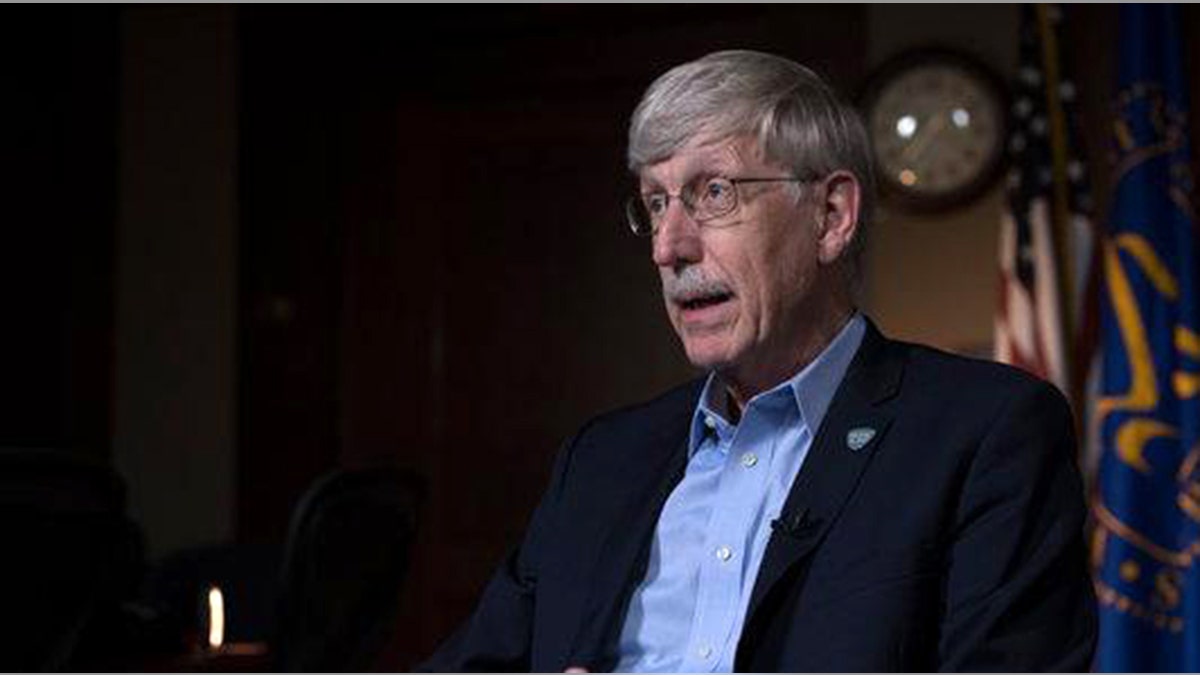
Dr. Francis Collins (AP)
The race in China to score money and prominence for biomedical research projects in their homeland is creating something of a cottage industry there – trying to steal work being done in laboratories in the U.S., according to the New York Times.
There’s a name for these thieves – “non-traditional collectors of information,” a somewhat euphemistic description given to these unsavory characters, according to Dr. Francis Collins, Director of the National Institutes of Health, and FBI Director Christopher A. Wray.
The Trump administration is alerting scientists and universities who have received NIH funding that their research, most of it at U.S. universities, is vulnerable to Chinese spies, the report said. The administration is also urging them to step up security, and use other means to safeguard their work.
The problem is of such concern that the administration assembled a panel to look into it. That panel submitted a report to the NIH last month.
The data thieves are giving their ill-gotten spoils to Beijing and have snatched biomedical secrets from confidential grant applications, the Times reported.
A China expert at the Center for Strategic and International Studies who spoke to the NIH panel told the Times: “NIH has basically been operating on the principle that everyone is well intentioned. Then they run smack dab into the challenge of China, which has millions of researchers scrambling for money and for fame and for national glory. That creates an environment where some people may feel pressure to skirt, ignore or break the rules.”
Some of the thieves, Collins and Wray say, are Chinese graduate students and visitors who steal from U.S. laboratories, then hand that material to Chinese scientists and operatives working for the government there.
In fact, apparently some scientists who received funding also had labs in China, and took funds from Beijing, unbeknownst to the NIH or the universities with which they were affiliated. The work of the NIH has expanded in recent years, and been beefed up by more funding from Congress.
Meanwhile, Chinese spying - and the pilfering of U.S. intellectual property and research - have been concerns in other areas, notably technology.
The Trump administration has responded by restricting visas for Chinese students in high-tech. “The biomedical research enterprise is under constant threat by risks to the security of intellectual property and the integrity of peer review,” Collins said, according to the Times, and “the magnitude of these risks is increasing.”
One source of the data thieves appears to be a Chinese talent recruitment program, said the chairman of the panel, Dr. M. Roy Wilson, the president of Wayne State University, in Detroit.
The program, called Thousand Talents Plan, identifies global experts from Western colleges and companies and recruits them to work in China in the areas of science and technology.
The theft of data and research is requiring a whole new mindset at the NIH and universities, Wray said to Congress last year.
“The level of naïveté on the part of the academic sector about this creates its own issues,” Wray said, adding China is “exploiting the very open research and development environment that we have, which we all revere.”
Such espionage of trade secrets on behalf of a foreign government is a federal crime, the Times noted. The panel that advised the NIH urged the agency to broaden its disclosure requirements.
“Even though you could argue that what we’re doing doesn’t relate to the national security, in a sense it does relate to our economic security,” said Dr. Lawrence A. Tabak, the NIH principal deputy director. “And it’s produced with taxpayer dollars."








































